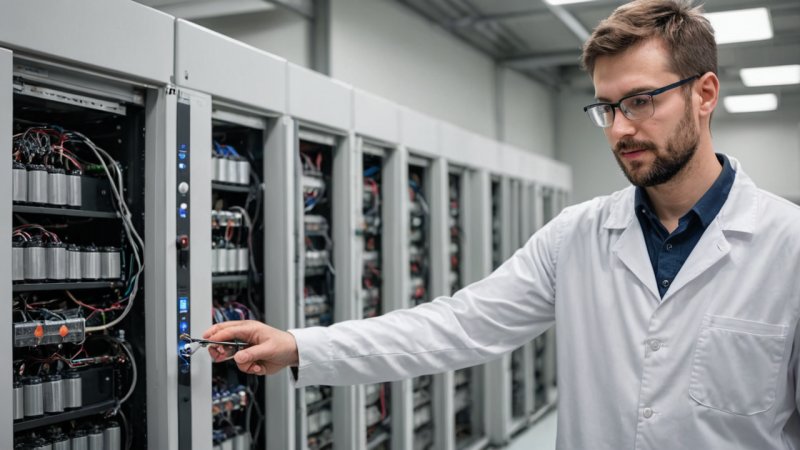As the world increasingly shifts towards sustainable energy sources, the role of engineering in developing efficient renewable energy storage solutions has never been more critical. Renewable energy, such as solar and wind power, is inherently intermittent, making effective storage essential for a reliable energy supply. This article explores the key engineering advancements that are shaping the future of energy storage.
One of the most significant breakthroughs in energy storage technology is the development of advanced battery systems. Traditional lithium-ion batteries have been the backbone of energy storage, but engineers are now exploring alternatives that promise higher efficiency and lower environmental impact. For instance, solid-state batteries, which use a solid electrolyte instead of a liquid one, offer increased energy density and safety. These innovations could revolutionize how we store energy, making it more accessible and sustainable.
Another promising area of research is the use of hydrogen as a storage medium. Engineers are investigating how to efficiently produce, store, and convert hydrogen back into electricity. Hydrogen fuel cells can provide energy on demand, making them an excellent option for balancing supply and demand in renewable energy systems. Additionally, the production of hydrogen through electrolysis using excess renewable energy presents a dual benefit: it helps to stabilize the grid while also storing energy for later use.
Furthermore, advancements in pumped hydro storage continue to play a vital role in large-scale energy storage solutions. This method involves pumping water to a higher elevation during periods of low energy demand and releasing it to generate electricity when demand peaks. Engineers are now focusing on optimizing these systems to enhance efficiency and reduce costs, ensuring that pumped hydro remains a competitive option in the energy storage landscape.
Innovative materials and technologies are also being explored to improve energy storage capabilities. For instance, researchers are looking into using supercapacitors, which can charge and discharge much faster than traditional batteries. These devices are particularly useful for applications requiring rapid bursts of energy, such as stabilizing the grid during sudden fluctuations in energy supply.
Finally, the integration of artificial intelligence (AI) and machine learning in energy storage systems is paving the way for smarter energy management. By analyzing data from various sources, AI can optimize when and how energy is stored and released, ultimately enhancing the efficiency of renewable energy systems.
In conclusion, engineering plays a pivotal role in advancing renewable energy storage solutions. From innovative battery technologies to the utilization of hydrogen and pumped hydro systems, engineers are at the forefront of creating sustainable energy solutions. As these technologies continue to evolve, they promise to make renewable energy more reliable, efficient, and accessible for everyone.






